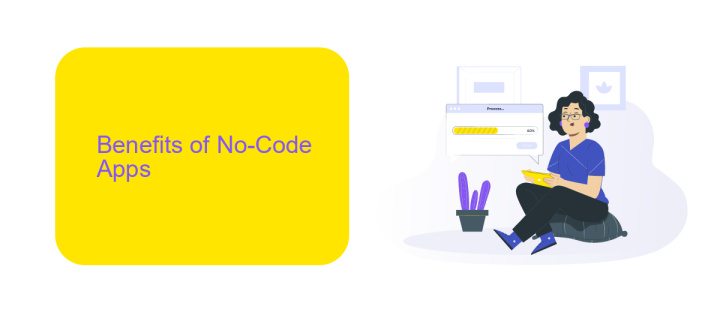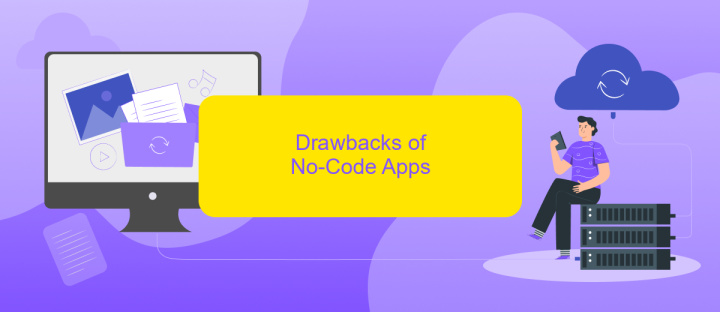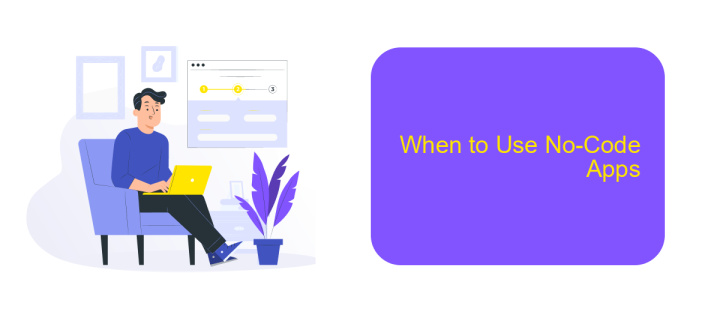Are No-Code Apps Good
In today's rapidly evolving tech landscape, no-code apps have emerged as a powerful tool for both businesses and individuals. These platforms promise to democratize app development by enabling users without coding skills to create functional and sophisticated applications. But are no-code apps truly effective? This article explores the benefits and potential limitations of no-code solutions, helping you determine if they are the right fit for your needs.
Introduction
No-code platforms have revolutionized the way we approach app development, enabling individuals without programming expertise to create functional and robust applications. This democratization of app creation has opened doors for businesses and entrepreneurs, allowing them to innovate and solve problems without the need for extensive technical resources.
- Empowerment of non-technical users
- Faster development cycles
- Cost-effective solutions
- Flexibility and scalability
Moreover, no-code apps facilitate seamless integration with various services, enhancing their functionality. For instance, tools like ApiX-Drive enable users to connect their no-code apps with other platforms effortlessly, automating workflows and improving efficiency. As the no-code movement continues to grow, it is essential to evaluate its benefits and limitations to understand its potential impact on the future of app development.
Benefits of No-Code Apps

No-code apps offer a multitude of benefits, making them an attractive option for businesses and individuals alike. One of the primary advantages is the significant reduction in development time. Traditional coding can take weeks or even months, whereas no-code platforms enable users to build functional applications within hours. This rapid development cycle is particularly beneficial for startups and small businesses that need to launch their products quickly to stay competitive.
Another key benefit is the accessibility of no-code apps. These platforms empower non-technical users to create and manage their own applications without needing to rely on expensive developers. This democratization of app development allows for greater innovation and customization. Additionally, services like ApiX-Drive facilitate seamless integration with various tools and platforms, ensuring that your no-code app can easily connect with other essential business systems. This enhances operational efficiency and allows for a more cohesive workflow.
Drawbacks of No-Code Apps

While no-code apps offer numerous benefits, they also come with certain drawbacks that users should consider. These limitations can impact the overall functionality and scalability of the applications.
1. **Limited Customization:** No-code platforms often provide templates and pre-built components, which can restrict the level of customization available to users. This can be a significant drawback for businesses with unique requirements.
2. **Scalability Issues:** As your business grows, a no-code app may struggle to handle increased data volume and user traffic, potentially leading to performance issues.
3. **Integration Challenges:** Although some no-code platforms offer integration options, they may not support all the tools and services a business needs. For more complex integrations, services like ApiX-Drive can help bridge the gap, but this adds another layer of dependency.
4. **Security Concerns:** No-code platforms may not offer the same level of security as custom-coded solutions, making them more vulnerable to data breaches and other security threats.
In conclusion, while no-code apps provide an accessible entry point for building applications, they come with limitations that may affect long-term success. Businesses should carefully weigh these drawbacks against their specific needs before committing to a no-code solution.
When to Use No-Code Apps

No-code apps are ideal for businesses looking to rapidly prototype and deploy applications without the need for extensive coding knowledge. They allow teams to focus on functionality and user experience rather than getting bogged down by technical complexities.
These tools are particularly useful for startups and small businesses that may not have the budget to hire a full-scale development team. No-code platforms enable them to bring their ideas to life quickly and efficiently, often with drag-and-drop interfaces and pre-built templates.
- Quickly validating business ideas
- Creating internal tools and dashboards
- Building MVPs (Minimum Viable Products)
- Automating workflows and processes
- Integrating various services through platforms like ApiX-Drive
Moreover, no-code apps can be a game-changer for non-technical team members, empowering them to contribute directly to the development process. This democratization of app creation fosters innovation and can lead to more agile and adaptive business practices.
When to Avoid No-Code Apps
No-code apps are incredibly useful for quickly developing applications without the need for extensive programming knowledge. However, there are situations where relying on no-code solutions might not be the best choice. For instance, if your project requires highly complex and customized features that go beyond the capabilities of no-code platforms, traditional coding might be necessary. No-code tools often come with limitations in terms of flexibility and scalability, which can hinder the development of sophisticated applications.
Additionally, if your application needs to integrate with numerous external services or APIs in a seamless manner, no-code platforms might not offer the required level of control. While services like ApiX-Drive can help facilitate integrations, they may not cover all specific needs or provide the depth of customization that a fully coded solution can. In such cases, investing in a custom-coded application ensures that all your integration requirements are met efficiently and effectively, providing a more robust and tailored solution.
FAQ
Are No-Code Apps Good for Complex Projects?
Can No-Code Apps Handle Integrations and Automations?
Are No-Code Apps Secure?
Do No-Code Apps Have Limitations?
Can Non-Technical Users Build Functional Apps with No-Code Platforms?
Time is the most valuable resource in today's business realities. By eliminating the routine from work processes, you will get more opportunities to implement the most daring plans and ideas. Choose – you can continue to waste time, money and nerves on inefficient solutions, or you can use ApiX-Drive, automating work processes and achieving results with minimal investment of money, effort and human resources.

